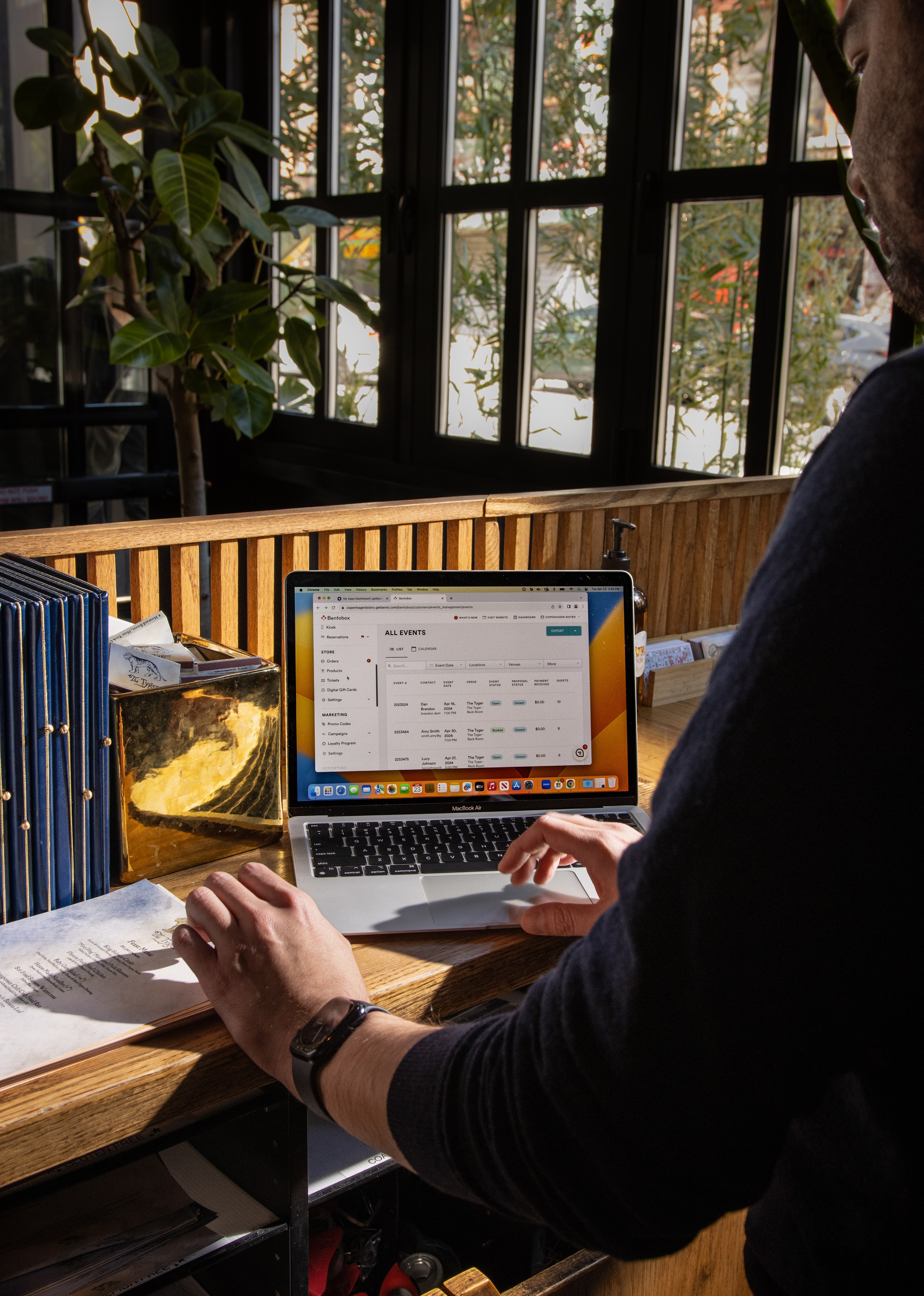Websites
10 Most Popular Restaurant Website Builders in 2024
An overview of the current restaurant website landscape.
Every restaurant needs a great website. It’s one of the best marketing tools to have in your arsenal, especially because 77% of diners check restaurant websites before visiting.
Whether someone wants to view your most up-to-date menus, place an online order, buy a gift card, or make a reservation, your website is your opportunity to show all of the ways to engage with your restaurant.
Restaurant websites should be informative, easy to navigate, SEO-friendly, responsive to any device type, visually appealing, and affordable. That may sound like a lot, but it’s surprisingly manageable if you pick a restaurant website builder that matches your needs. The right solution will help your restaurant rank higher in search, appeal to more people, and bring in more sales.

PRODUCT
Websites for Restaurants
Get a beautifully designed website with tools to grow your business.
What is a Restaurant Website Builder?
A restaurant website builder is a tool for restaurateurs to create, design, publish, and maintain a website for their business. It enables you to update your menu, adjust your hours, or notify guests about closures due to private events without relying on a web developer.
The best restaurant website builders also give you the ability to manage online orders, reservations, private event requests, merchandise, catering, ticketed events, and gift cards directly through your website.
Key Features for a Restaurant Website Builder
So how do you decide which software is best for your restaurant? There are a lot of options available, so to narrow down your choices, here are the five most important things to look for in a restaurant website builder to help select the right one.
1. Built-In SEO Features
Data from this restaurant trend report showed that search engines and websites were the top two channels for diners finding new restaurants, outpacing social media and third-party apps.
It’s important that when someone searches for your restaurant online, your website is the first result. To make this happen, websites must be:
Fast. Pages that take too long to load are often lowered on search engine results pages as algorithms want searchers to find their desired information faster.
Responsive. Users need to be able to intuitively navigate the restaurant’s website on any browser or device type.
Searchable and clickable. Search engines are looking for well-organized, clearly-labeled webpages and text-based menus.
Website builders that prioritize these restaurant SEO best practices help restaurants get more website traffic, which is important considering that more people coming to your website means more opportunities to turn them into paying customers.
2. Integrated Commerce Options
Generic website builders (ones that aren’t built specifically for restaurants) like Shopify, Squarespace, Wix, and Wordpress often require costly add-ons or integrations to run an online ordering system, gift card management program, or online merchandise store.
This often means creating more accounts, managing different logins, using inconsistent data, and potentially paying higher commission fees. Not only do these additional features detract from your restaurant’s bottom line, they create a disjointed experience for diners who are forced to use many different technology platforms to engage with restaurants.
With a website builder that also offers direct, integrated commerce tools, diners don’t ever leave your website and can make purchases directly through the restaurant. With third-parties involved, restaurants can keep data from their guests and use it for automated marketing campaigns through a built-in CRM platform.
3. Complete Customization
As helpful as templates are for building a website quickly, they can impose design restrictions on optimizing a website to meet a restaurant’s needs. That’s why restaurants should have the ability to completely customize and design their website for optimal performance. Everything from actionable elements like connecting your online ordering to brand-focused elements like logo placement should be in the restaurant’s hands.
4. Straightforward Analytics
Proving the ROI of a website can be tough without the proper analytics in place. Website admins need to be able to access and identify the data most important to the restaurant such as pageviews, on-page activity, order history, and online ordering sales.
Seeing what pages are driving the most revenue in a restaurant website dashboard helps identify trends for the site and identify what growth opportunities exist for bringing in a larger audience online and generating more revenue.
5. Marketing and CRM Features
Through loyalty promos, online ordering, and newsletter signups, a restaurant’s website is an ideal place to capture guest contact info and build a database of eager and engaged diners.
A restaurant’s website needs to be able to capture these details like guest name and email, but also store it in a customer relationship management (CRM) system. From there, restaurants can run automated marketing campaigns to send discounts to guests to incentivize new orders. Gathering this information through the website ensures restaurants keep guest data themselves and don’t lose it to integrations or third-party ordering sites.

RESOURCE
12 Must-Haves for Restaurant Websites
Take your digital front of house to the next level.
10 Most Popular Restaurant Website Builders
Whether you’re a new restaurant building a website for the first time or an established concept seeking out a different solution to what you’re currently using, it’s helpful to understand the website builder landscape.
Some website builders work exclusively with restaurants and are built with hospitality-specific features in mind. Other website builders are more general and used by businesses across all types of industries. This list includes both types and talks through the features of each option.
BentoBox
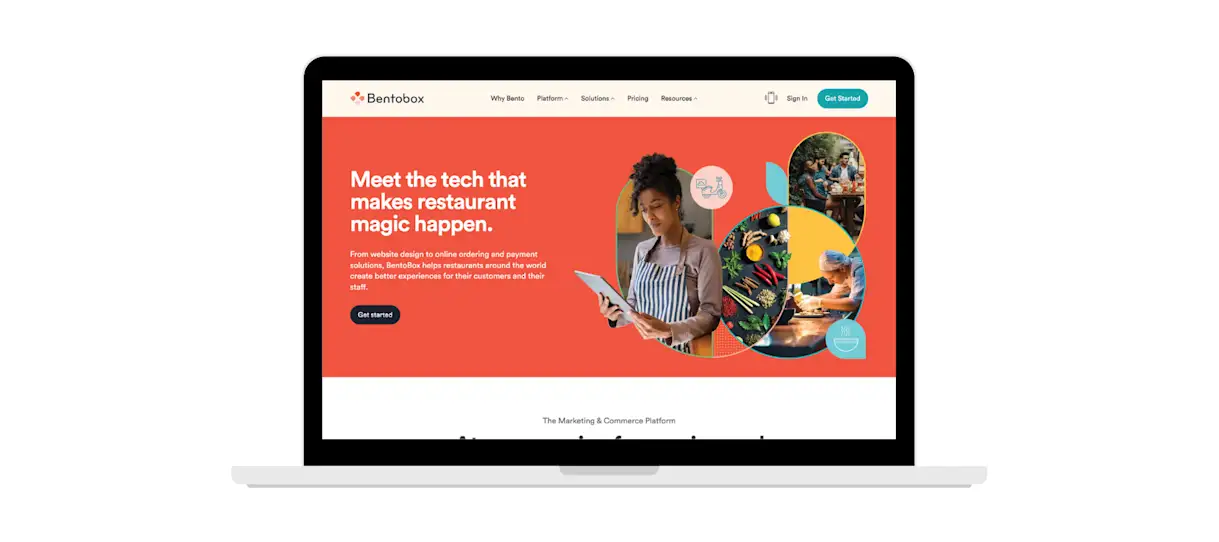
BentoBox is one of the few restaurant-specific website builders on the market, meaning the features that matter most to restaurateurs are built into the product. Online ordering, reservations, and gift cards can all be managed through BentoBox, in addition to needs like catering and online merchandise stores. With all of these technology tools hosted on the restaurant’s website, operators don't lose out on the customer information or profit margins they’d have to sacrifice with third-party platforms.
BentoBox has a team of design and hospitality experts who build the website alongside clients in less than 30 days. Restaurants have complete control over the branding and imagery they use. Restaurateurs can also use BentoBox’s analytics dashboard to see who is viewing the restaurant’s website and where they’re coming from online.
On top of that, BentoBox has built-in SEO features to ensure speedy page loading and a responsive design to help restaurant websites rank higher on search engines. One of these features is the local listings tool, which ensures hours, menu availability, and locations are accurate across search engines.
Flavor Plate
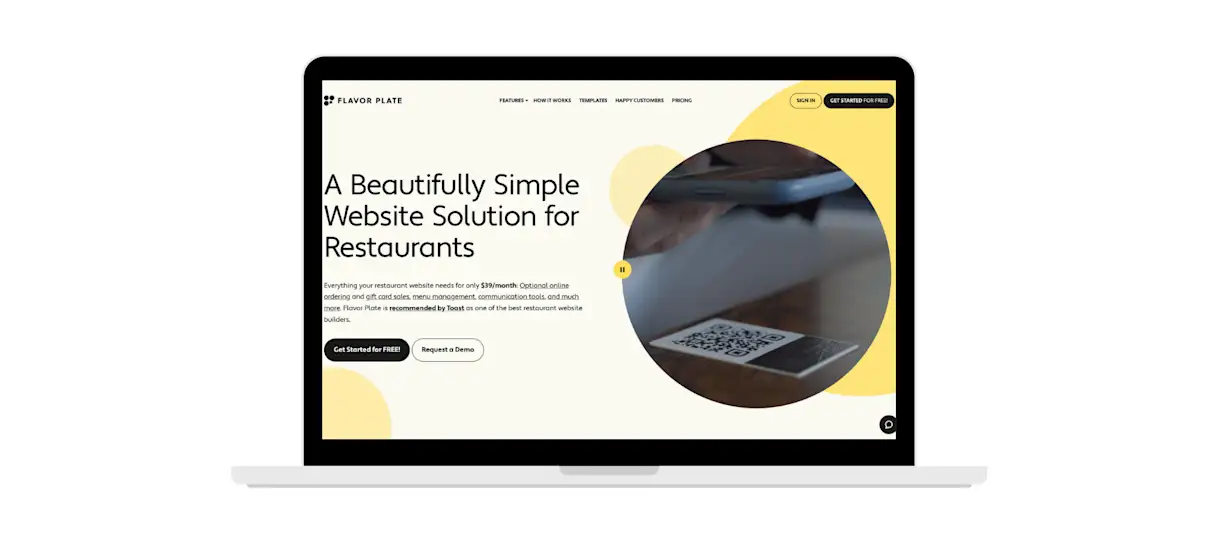
Another option built exclusively for restaurants, Flavor Plate offers a library of templates for restaurateurs to use and start building their website instantly. While this builder doesn’t come with options for loyalty programs or merchandise sales, there are features for online ordering, menu management, event calendars, and gift cards. Flavor Plate also has a reporting feature, although it’s less advanced than some competitors and relies on an integration with Google Analytics 4.
Popmenu
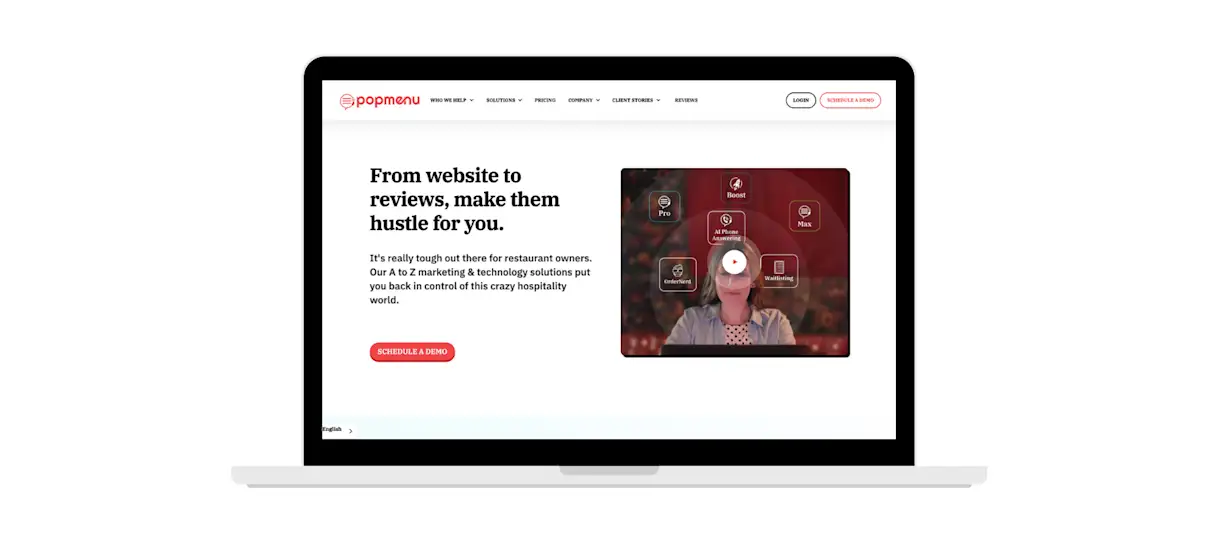
Popmenu is a restaurant website hosting and design platform that offers direct online ordering, dynamic menu management, and marketing automation tools. One of Popmenu’s biggest features is an interactive menu that allows guests to leave reviews of their meals and provide feedback to the restaurant. The platform also enables restaurants to enroll diners in automated messaging campaigns and send offers through text marketing to incentivize new orders.
Shopify
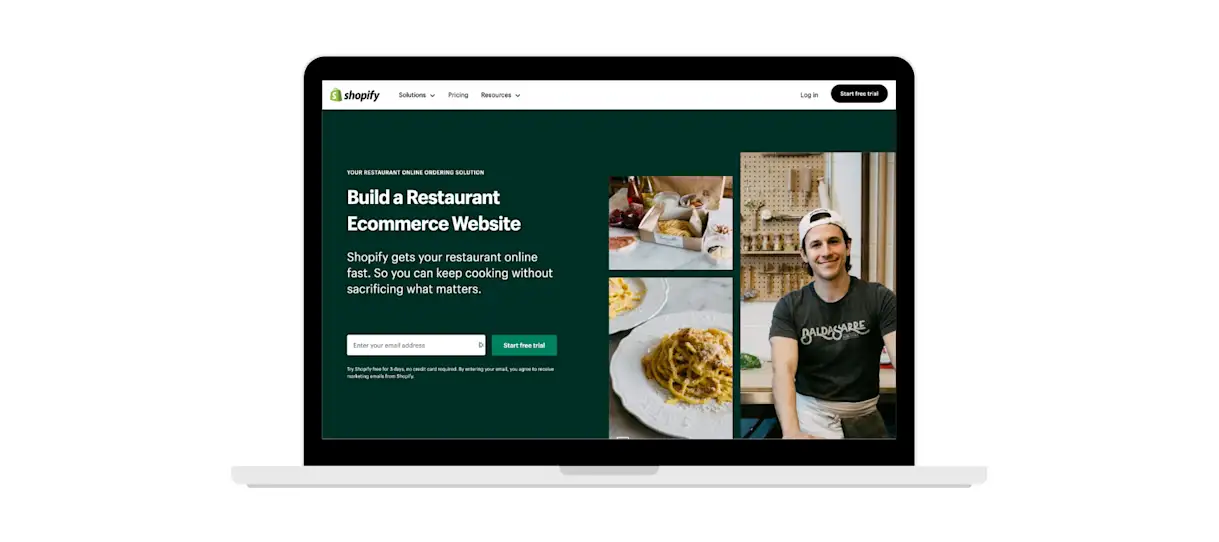
One of the biggest forces in e-commerce today, Shopify’s restaurant website builder acts prominently as an online ordering platform rather than a multi-functional website. On top of that, features like pre-built themes and SEO tools help a restaurant get built and rank faster — and in turn — help restaurants scale their direct online ordering program quickly. Shopify does lack some key features like local listings management — which, if not supported, can cause someone searching for a restaurant online to see incorrect operating hours or outdated menu offerings.
Spothopper
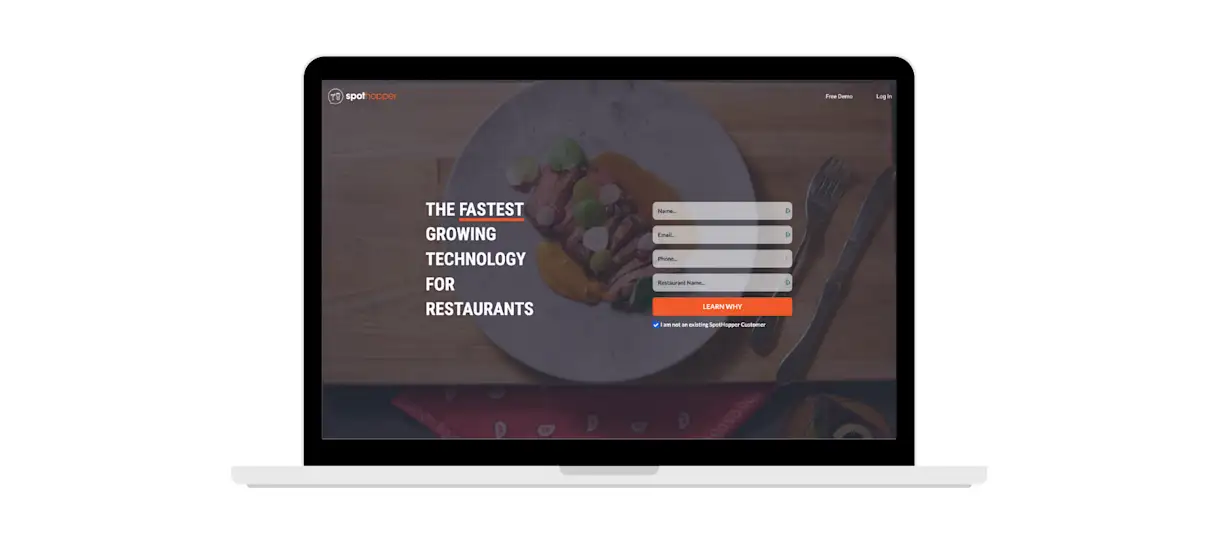
Spothopper is another restaurant-focused platform that offers custom-built website design, full set-up support and build, commission-free online ordering, catering & events, automated email and SMS campaigns, and delivery integrations. The strength of these features is countered by the lack of support in search engine optimization, local listings management, and POS integrations.
Squarespace
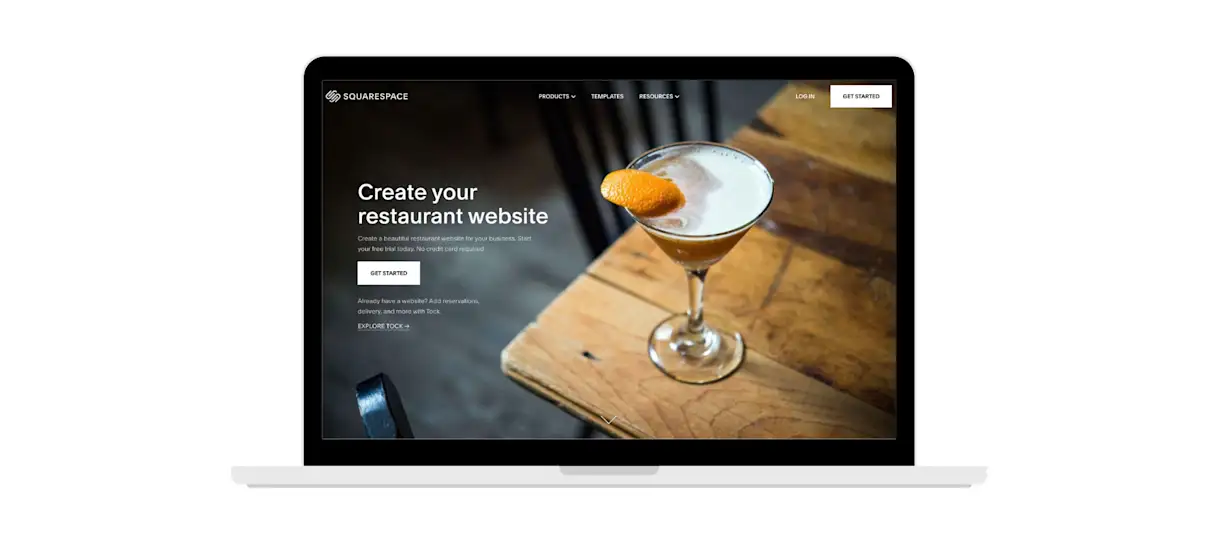
Squarespace is a behemoth of website builders. While not focused specifically on the restaurant industry, Squarespace makes up for it with extra features through Tock, an add-on feature for reservations, events, takeout, and delivery. The fact that Squarespace is such a popular website builder means there are plenty of integrations available such as social media sites, OpenTable, and event calendars. Online ordering, however, does not come with Squarespace, meaning restaurants will need to bring on another (and perhaps more costly) solution.
Upmenu
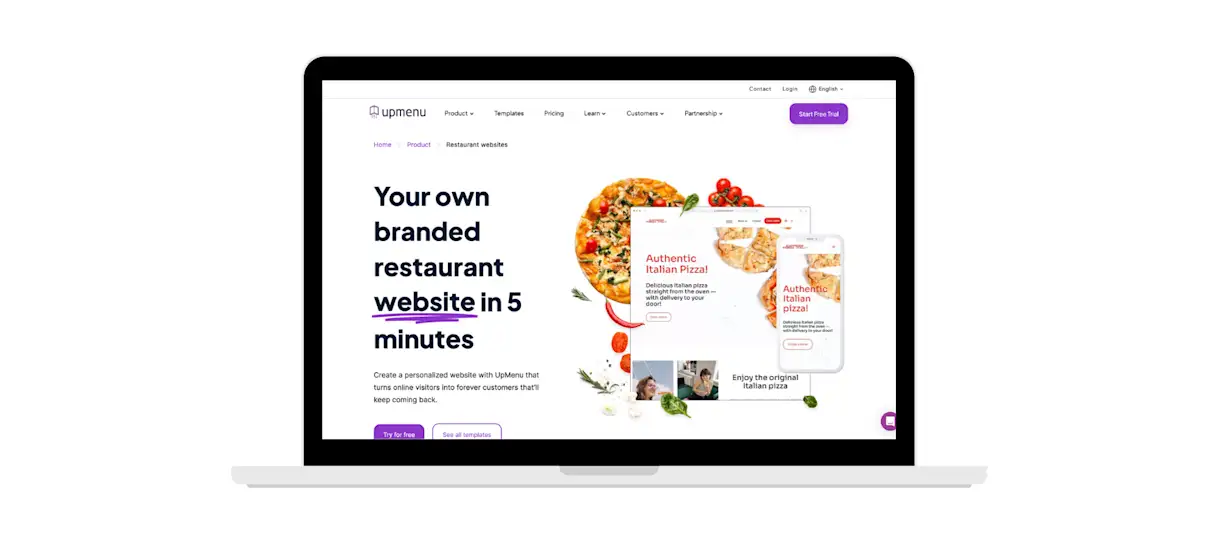
Upmenu allows you to build your own website and customize both the design and layout with a drag and drop system. They also have a collection of marketing tools like the automated collection of customer reviews and a loyalty program that enables diners to collect points and stamps to earn rewards. Additionally, the company has built-in integrations with their own online ordering system, dine-in ordering, and table booking system. However, their overall integration options with third-party POS and delivery platforms is lacking.
Wix
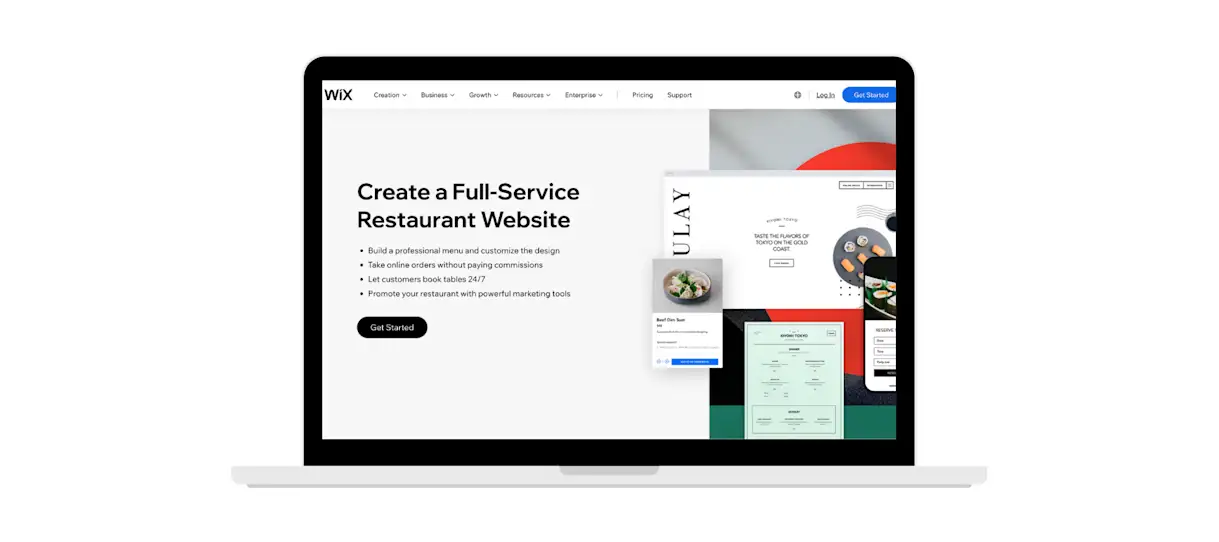
Wix boasts a notable share of the website builder market, featuring a drag-and-drop setup similar to Squarespace. While not a restaurant-only website builder, Wix’s restaurant options include 60+ pre-designed templates, commission-free online ordering, reservations, menu management, secure payments for ticketed events, and social media integrations. However, Wix lacks some important features that restaurants need like local listing management and fast, full setup by the Wix team.
WordPress
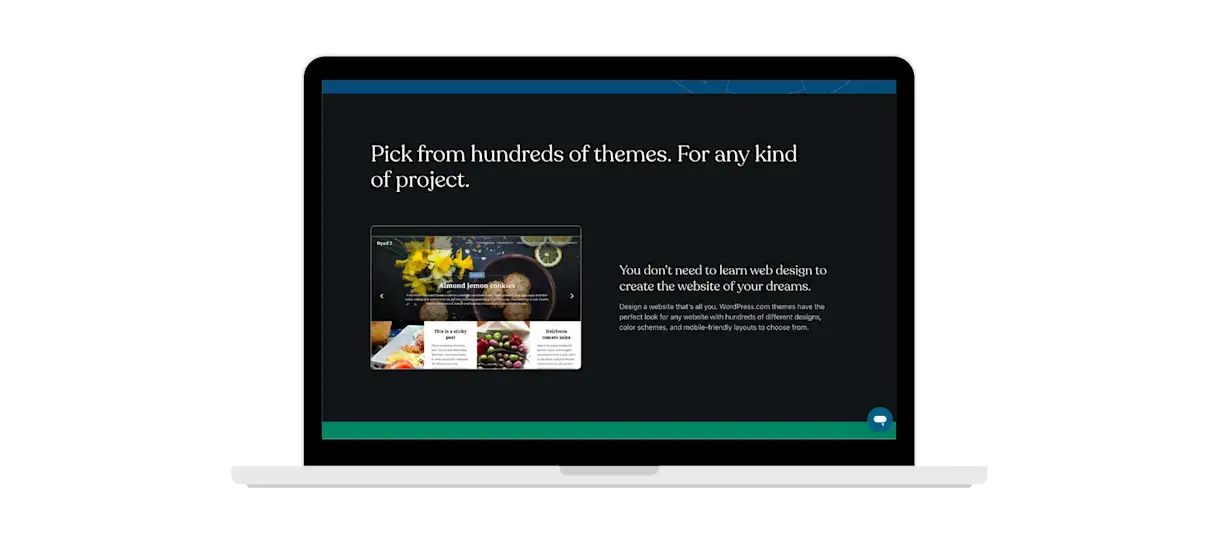
Wordpress is the most popular website builder in the world — in fact, 42% of websites are built on the platform. WordPress websites are responsive to all device types, come with built-in social media sharing links, are optimized for search engines, and can be built in any way. However, the software wasn’t built for restaurants specifically and requires a lot of work to customize a website for use as a restaurant. While you can build a website yourself through Wordpress by using any of the templates available, it’s likely that you’ll need to hire a developer to take full advantage of what WordPress offers as well as pay for the features that aren’t natively offered through the solution, like online ordering.
Zyro
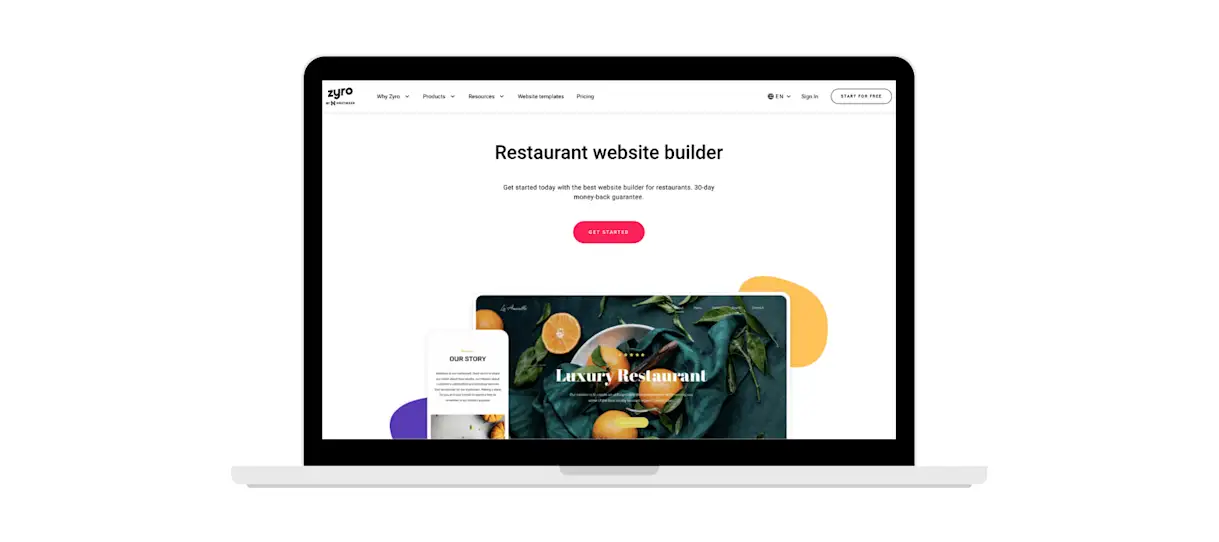
Zyro is an easy-to-use builder if you’re looking for a simple solution for your restaurant. You can choose from 13 professionally-designed templates without needing any web experience. Zyro shines with its ecommerce functionality, which is helpful if you have an online merchandise store. Their website also offers a free logo maker tool — a helpful resource especially for new restaurants. Some challenges about using Zyro are that your branding might not shine through due to limited design capabilities. You’ll also need a separate solution for managing online ordering, gift cards, reservations, and your loyalty program.
Building a Better Restaurant Website
With the right platform, your restaurant website can become a digital powerhouse that communicates your story and drives revenue. Ask yourself the following questions to help guide you before making a decision:
How much creative control do you want over your website design?
Is customization important to you?
Do you need to be able to make a website change quickly?
Does the website integrate with the technology you’re currently using?
What are the reporting features available?
Is working with a company with a focus on restaurants important to you?
Will the solution you pick save you time?
Here is also a list of resources:

BentoBox Marketing & Commerce Platform
Want to stand out online? Let's chat.
Drive revenue directly through your website.
Recommended
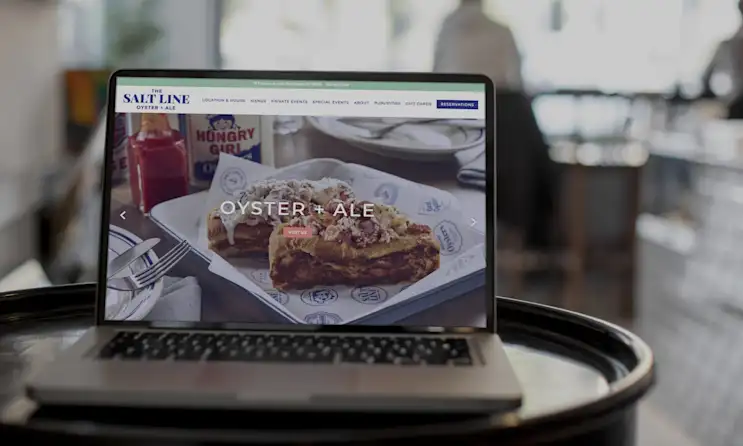
Websites
The 5 Most Important Pages for Any Restaurant Website
August 19, 2020
Including menus, locations & hours, online ordering, reservations, contact info and more.

Marketing
8 Easy Steps to Improve Your Restaurant SEO
March 10, 2023
Learn some best practices that restaurants can use to boost their local search rankings online and get more guests through the doors.
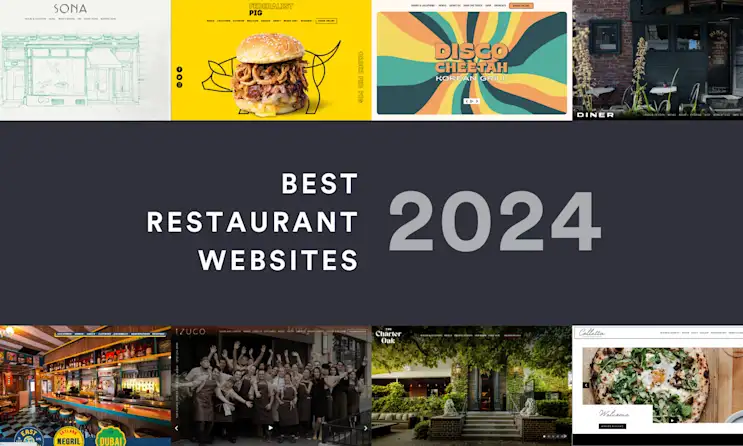
Design Inspiration
The 20 Best Restaurant Websites of 2024
January 3, 2023
Our annual roundup of the internet's best restaurant websites.
